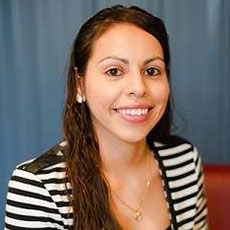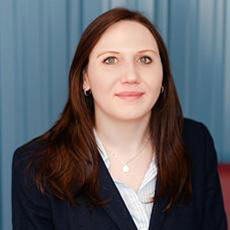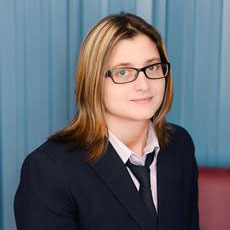The state of Pennsylvania has taken what could be the first step to close a controversial family detention center that has housed thousands of parents with their children who are seeking U.S. asylum. State officials have told the Berks County Residential Center that it won’t renew its 15-year-old license because it was only authorized as a child care facility, not a detention site for families. The Berks jail is a part of the Obama administration’s “detention as deterrence” policy that locks up asylum seekers in what critics call “deportation mills.” We get a report from Democracy Now! criminal justice correspondent Renée Feltz, who went inside the Berks County facility.
TRANSCRIPT
This is a rush transcript. Copy may not be in its final form.
JUAN GONZÁLEZ: We turn now to an update on immigrant children and their parents who are seeking asylum in the U.S., many of them fleeing some of the most violent countries in the Western Hemisphere—El Salvador, Honduras and Guatemala. Democracy Now! has reported on how the Obama administration uses a “detention as deterrence” policy that locks up these asylum seekers in what critics call “deportation mills.” Two of the most controversial detention centers opened last year in the Texas towns of Dilley and Karnes. They are run by private prison companies, and together they can hold more than 2,500 women and children.
AMY GOODMAN: Efforts to close these facilities have focused in part on a 1999 settlement that outlines federal standards for detaining migrants and bans the placement of children in secure faculties. Now, a lesser-known family detention center in Pennsylvania may soon have to shut down because the state refuses to renew its license. It’s called the Berks County Residential Center, and it’s been operating under the license for 15 years. But there now may be a first step toward closing its doors. Democracy Now! correspondent Renée Feltz filed this report.
RENÉE FELTZ: It was 3:00 in the morning at the family detention center in Berks County, Pennsylvania, when a Guatemalan migrant named Ana woke up to the news that her request for asylum had been denied and she was being deported. “They said they had an order,” she says. “They did it quickly, very quickly.” Ana and her 12-year-old daughter had spent a year in detention while seeking asylum from life-threatening attacks. Because that asylum claim was still winding its way through the courts when they were deported in June, a judge ordered their return. The two were sent back to the Berks detention center. This time they were released within hours. The next day, Ana joined a protest directly across from the facility, where she spoke through a translator.
ANA: [translated] We were detained at this detention center for a year, and our rights were violated, both our human rights and also the rights of my daughter.
RENÉE FELTZ: Standing next to Ana was her 12-year-old daughter, Yubitza. Tears ran down her cheeks as demonstrators chanted, “You are not alone,” to those still detained across the street. After a few minutes, the girl grabbed the bullhorn. “All together, we can do it,” she says. “We can shut this place down.” That was July. Now, Yubitza’s demand has been echoed by the state of Pennsylvania. At the end of October, the state’s secretary of human services, Ted Dallas, announced in a letter to the head of the center that he would not renew its license to operate if it continues to hold families instead of children.
JENNIFER LEE: I really do think it’s a statement saying, “We can’t license a family detention facility,” which basically means you can’t have a family detention facility here in Pennsylvania.
RENÉE FELTZ: Jennifer Lee is a professor with Temple University Law School’s Sheller Center for Social Justice. She and her students work with a coalition to shut down Berks.
JENNIFER LEE: Essentially, the Berks facility has a child residential facility license under state law, but it doesn’t meet any of the requirements for a child residential facility. And the biggest example of that is that the child residential facility license is really only a license for a facility that holds children, not a facility that holds children with adults.
RENÉE FELTZ: The Berks detention center is housed in a former nursing home that holds about 95 people. It’s the only immigration facility that holds fathers as well as mothers, who have come to the United States with their children. Immigration attorney Carol Anne Donohoe says her clients there have described how kids are housed with their parents in rooms of six, along with unrelated adults.
CAROL ANNE DONOHOE: You know, I asked a father, because, you know, a sweet little eight-year-old girl, you know, quiet and shy. And I asked him, you know, “Who are you in the room with?” And he said that there are—there were, at that time, two other fathers and, according to what he said, a 14-year-old boy and another nine-year-old girl.
RENÉE FELTZ: Unlike the private family detention centers in Texas, Berks County operates this facility in Pennsylvania under a contract with the Department of Homeland Security’s Office of Immigration and Customs Enforcement, or ICE. The agreement requires rooms to contain cribs, playpens and rocking chairs on an as-needed basis for residents.
BRIDGET CAMBRIA: We’ve represented clients—or children, sorry—as young as nine days old, all the way to 17 years old.
RENÉE FELTZ: Bridget Cambria is another immigration lawyer with clients at Berks.
BRIDGET CAMBRIA: I can talk to you about our infant client. She came to Berks—I believe she was 11 days old. She was detained at nine days. During that time, she went to the hospital one time. She was seen for one hour in a hospital as a newborn. And from that, she was put on a plane and taken to Berks, where she remained for about two weeks before she was freed. And when she was finally released, she was released at 3:00 in the morning, in the middle of the night.
RENÉE FELTZ: Cambria says cases like this drive home how the Berks detention center fails to comply with Pennsylvania law.
BRIDGET CAMBRIA: The child welfare laws are very clear. They do not want children detained under nine in secure facilities. They want to allege that Berks is not secure. It obviously is secure. You walk up, there are signs that says this is a secure property, right? It’s advertised.
RENÉE FELTZ: The limited freedom parents and children have at Berks is less visible to observers compared to the family detention centers ICE has in Texas, which are surrounded by barbed wire and high fences. In contrast, Berks has an outdoor recreation area that’s separated from a parking lot and a forest only by a row of plastic traffic cones. Activist Erika Almirón says that’s enough.
ERIKA ALMIRÓN: I know for a fact that the women told me that ICE had gone in and told them, if they were to leave the facility while we were there and join us, even though there’s no fence, if they were to cross—they put out these orange cones—if they were to cross over the orange cones, that they would be charged federally, and they would wind up in actual, actual prison. And so there was a lot of how—you know, it’s like a mental block. It’s like they put a big fear in the women of leaving. So you don’t need a fence anymore when you start talking like that.
RENÉE FELTZ: Almarón is executive director of the Philadelphia immigrant rights group Juntos. They’ve been working with detainees at Berks to monitor and improve conditions. Almarón says the push by advocates and lawyers for Pennsylvania to revoke Berks’ license has resulted in a partial victory. She welcomes the announcement the state may not renew Berks’ license when it expires in February, but she questions the delay.
ERIKA ALMIRÓN: I’m glad that this came out, because I think for months we have been saying that the license did not fit what they were doing on the inside. It’s really important to see it on paper and to finally be validated for all the things that we’ve been saying. I just think that partly also, as I’m reading this, right, as we see this as a huge victory, the center is still open. Berks is still operating. There are still children in there. And if it’s not licensed correctly now, there is nothing that Berks can do to fix it, to fix the license, so it can fit the license. So, what I don’t understand is: Why are we waiting until February?
RENÉE FELTZ: Meanwhile, immigration authorities say they’re reviewing the state’s correspondence to determine the next appropriate steps. In Berks County, Pennsylvania, I’m Renée Feltz for Democracy Now!
AMY GOODMAN: And Renée joins us now here in New York to talk more about her reporting. And congratulations, Renée, for just winning the Front Page Award for TV Special Reporting from the Newswomen’s Club of New York for reporting on the Obama administration’s mass detention of women and children from Central America in private prisons. And you can see those reports [Part 1 and Part 2] at democracynow.org.
But to this report, you just got back from Berks, and you interviewed a mother there. Talk about what you found.
RENÉE FELTZ: Yes. I was able to go inside the facility and speak with a young woman from Guatemala, who came here seeking asylum, escaping domestic violence and also extortion from gangs there, where she tried to work in the capital. Her nine-year-old daughter is also held there and has also faced harassment and came with her. Now, Myra is a person who’s come several times, and therefore, since she’s been deported previously, she’s not able to get released immediately right now under the way things are being handled.
So, what’s interesting in part about Myra, in addition to just her personal story, is that she was held in a facility down in Texas, the Karnes detention center. And then, because of new limits that ICE is trying to place on how long these women and children are held in the facilities, and they’re trying to keep it to maybe 20 or 30 days, she was not released after that time, but instead she was moved from the Texas facility to the Berks facility in Pennsylvania. So that was interesting to find out.
Now, one of the things I mention in the report is the characterization of this facility as a “secure facility.” How free are people to roam? When I was done with my interview with Myra, she was able to get up and walk out of the room. It did seem kind of free, witnessing the facility inside. I didn’t see locks on the doors, for example. However, as I say in the report, the women do face punishment if they were to leave. And during the interview, Myra repeatedly would descend into sadness in her answers to me and appeared very tired and would slump over. And I asked her to confirm whether or not the counselors, as they call them in the facility, check on them at night. And she did say, yes, they come in about every 15 minutes and shine a flashlight to check on people. And I’m not sure if that’s why she was so tired. She seemed, you know, pretty stressed out about the whole experience.
I wanted to also mention, in terms of what’s next here, the role of the county commissioners. I mention in the report that it’s a facility run by Berks County in Pennsylvania in combination with ICE. And maybe we can play a clip here of Commissioner Mark Scott, who touted the benefits of this facility recently during a debate before the election.
COMMISSIONER MARK SCOTT: There are a number of benefits that accrue to the Berks County taxpayers by continuing the operation of that residential center. First of all, it makes productive use and brings in revenue from buildings that would otherwise be vacant, and vacant buildings deteriorate very quickly. So we get out of the costs of maintaining a vacant building or trying to preserve it intact. We get additional revenue, which is substantial. We create some local employment of roughly 70 employees who work there, who are Berks County residents. And we serve our country’s effort to—sometimes I think it’s halfhearted—to enforce the immigration laws so that we deal with legal immigration instead of illegal immigration.
JUAN GONZÁLEZ: And, Renée, your response to that clip? And also, you were able to talk to one of the women in the detention facility, but not film her. Could you talk about that, as well?
RENÉE FELTZ: That’s right. You know, Juan, as my role here at Democracy Now! in part is a criminal justice correspondent, I’ve been able to go on death row and film and interview in person with a prisoner. But this facility does not allow any filming or recording of any type of their detainees, and they say it’s for their own safety, but advocates have raised concerns about getting these women’s voices out to the public and, again, you know, the freedom that they have to express themselves. In terms of the commissioner, I know that advocates are disappointed that the county is not taking action. But it remains to be seen what’s going to happen there in the next steps.
Link: democracynow.org




